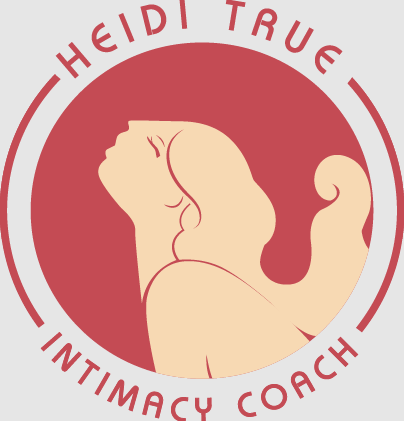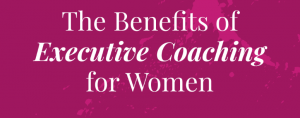In today’s fast-paced world, meaningful connections and deep relationships can sometimes feel like a rare luxury. Intimacy, in all its facets, is fundamental to our well-being and happiness. For those navigating the challenges of intimacy, turning to a professional might be an insightful decision. Enter the world of intimacy coaching. This guide will walk you through everything you need to know about this growing field.
What is Intimacy Coaching?
Intimacy Coaching Definition
Intimacy coaching is more than mere relationship advice. It is a specialized domain focused on enhancing the deep emotional, physical, and mental connections individuals share, either with their partners or with themselves. While the term ‘intimacy’ often conjures thoughts of physical closeness, in the context of intimacy coaching, it is expanded to mean a holistic understanding, trust, mutual respect, and profound emotional bonding.
The Role of an Intimacy Coach
The pivotal question – what does an intimacy coach do? These experts aren’t just relationship advisors. They are trained professionals adept at helping individuals unearth their barriers, understand entrenched fears, and recognize patterns that might deter profound connections. Through carefully structured sessions, they nurture enhanced communication, help clients articulate desires, and foster an environment ripe for vulnerability and growth.
Why Do Couples and Individuals Seek Out Intimacy Coaching?
Revitalizing the Spark in Relationships
Many relationships, after the initial honeymoon phase, find themselves grappling with routine and monotony. This is a dominant reason propelling couples towards an intimacy coach. These seasoned professionals, with their arsenal of tools and techniques, aid couples in rediscovering their lost passion, fostering meaningful communication, and aligning with each other’s ever-evolving needs.
Addressing Personal Barriers
The path to intimacy isn’t solely about connecting with another; it often begins with oneself. Intimacy coaching delves deep into helping individuals identify, confront, and surmount these personal barriers, enabling them to forge deeper connections both internally and externally.
Can An Intimacy Coach Help You with Your Sex Life?
Beyond Physical Intimacy
The physical dimension of relationships, though significant, is just a fragment of the comprehensive intimacy canvas. The intimacy coach takes a holistic view, bridging emotional, psychological, and physical realms, crafting a well-rounded approach to a fulfilling sex life.
Tailored Approaches for Different Genders
Gender dynamics in the realm of intimacy are intricate and multifaceted. Societal impositions, deep-seated personal apprehensions, and misaligned communication often play a role. Thus, the intimacy coach for men might navigate differing terrains compared to an intimacy coach for women. Recognizing these differences and customizing the approach is paramount.
The Journey to Becoming an Intimacy Coach
Skills and Qualifications
The allure of being an intimacy coach extends beyond the charm of helping people. For those genuinely intrigued, it necessitates comprehensive training, grounding in human psychology, and an innate passion for relationship dynamics. Multiple reputed institutions proffer specialized courses in intimacy coaching. Moreover, networking with experienced intimacy coaches can lend profound insights into this nuanced profession.
The Ethical Dimensions
The mantle of an intimacy coach comes with its set of responsibilities. Ethics reign supreme. Confidentiality isn’t just a legal requisite; it’s a cornerstone of trust. Navigating intimate terrains demands respect, a non-judgmental attitude, and an unwavering commitment to the client’s well-being.
Unique Intimacy Coaching Exercises
Relationship Intimacy Coaching Exercises
Intimacy isn’t an abstract concept; it’s rooted in actions, understanding, and continuous effort. Love and intimacy coaches deploy a gamut of exercises – from trust-building activities, communication simulations, to practical drills. These aren’t airy-fairy theories; they’re tangible tools rooted in real-life relationship dynamics, curated to foster connection.
Personal Growth Activities
For the individual, the intimacy journey is about introspection. Exercises often orbit around journaling, meditation, guided self-reflection, and confidence-building drills, ensuring individuals are empowered in their intimate endeavors.
Finding the Right Coach for You
Locating Intimacy Coaches Near You
In our digital age, a simple search for “intimacy coaches near me” might yield a plethora of results. But it’s pivotal to tread with discernment. Testimonials, client feedback, understanding a coach’s philosophy, and initial consultations are imperative before making a choice.
The Difference Between Intimacy and Relationship Coaches
Though these terms are often used interchangeably, subtle differences mark their domains. While both roles do intersect, an intimacy coach’s primary focus is on deepening connections across all levels. In contrast, a relationship coach offers a broader spectrum of relationship advice and strategies.
In summation, the domain of intimacy coaching is an expansive one, catering to a myriad of relationship nuances. For those navigating the waters of relationships or even self-intimacy, understanding the ins and outs of this profession can be a beacon. Deep connections, trust, and mutual growth are the keystones of fulfilling intimacy, and with the right guidance, they are well within reach.
One of our most experienced intimacy coaches, Marie-Claire, joined us to answer some of the most common questions that we get from people that are looking for relationship or intimacy coaching. This is the second blog posts based on these discussions.
Q: Can you help people who have cancer?
‘Yes, so the question I often get is: How do you go back to sexuality when your body is different than what it was pre-cancer? I can help you with that, and this is really important because this is a part of health.
Sexuality is a part of overall health, and it encompasses feelings, it encompasses desires and a variety of preferences. But most importantly, it offers a really important healing practice’.
‘I hope that sexuality can really help you heal, and it can really help you move forward. And opening up to your partner, learning how to communicate your feelings can make you even more connected’.
‘It’s in this vulnerability that you can find a space of connection. I know it’s hard, but I’m here to help you through it. I offer you a very secure, comfortable and very safe space so that you cant talk about your deepest feelings.
It’s not easy to talk about those feelings that you have during this time, it’s a very challenging time, and it’s a time where there’s a lot of uncertainty.’
Helping women with cancer and post-cancer
‘As an intimacy coach, I have helped a lot of women in my community with breast cancer and cervical cancer. I’ve worked with Rethink Breast Cancer. They are an organisation that helps women.
They think outside the box, and they asked me to be on an expert panel to help women. There’s a lot of scientific research, that’s how I prepare and present all my work. I use a science-based approach’.
‘In my research, I found that a lot of women with breast cancer have a lot of issues with body image. And also, sexuality post-cancer. And when I asked women if they did indeed have these issues, all of them held their hands up. So this is a place where I can really help you move forward’.
‘My mum had breast cancer. And I asked my mum after her breast cancer surgery, ‘mum, how are you going to do this?’ and she says ‘Oh, honey, I have a lot of other parts that are working really well other sexual parts’.
That attitude that I’ve learned from my mum, I want to share that with you. Yes, we can have a lot of fun. There’s a lot of other things you can do, and let’s really help you to connect more with yourself and with your partner through intimacy coaching’.
Helping men with cancer and post-cancer
‘Men that go through prostate cancer have a lot of issues to post-cancer. Some of them have issues with erectile dysfunction, or I like to call it erectile challenges, and also intimacy. I help them navigate the whole world of intimacy again’.
‘It’s very traumatic to go through all of this and to get closer to your partner is what I can help you with. 100% of my clients and students have a better intimate connection than they had pre-cancer.
That really sets my soul on fire, because I know I can help you have a better life, you’ve gone through enough. I want you to really feel the love, the connection and that boost to help you move forward’.
Q: Love languages. What are these, do we need to know them?
‘It’s important to me that my intimacy coaching sessions are really value-packed, so I always email my clients before we have our first session. I ask my clients to go on to Gary Chapman’s website to complete the love language quiz there.
My goal in our very first session is to recognise how your partner needs to be loved. And that can be non sexually in the beginning, but with time it’s also going to be sexually because there is a correlation’.
‘Say that your partner likes to be touched, so physical touch. That means massages are important. I will translate your love languages into lovemaking and how you can connect more through lovemaking. So check out those five love languages’.
Q: Once you know your love language, where do you go from there?
‘I teach my clients about the art of compromise. Gottman’s has a whole section in our training about compromise. It’s based on 40 years of studies so it’s based on science.
It’s based on a longitudinal study. So they are studying couples over a long time to make sure that the methods are still working, and they do.
During intimacy coaching, you learn to compromise, you need to go towards your partners love language, and he or she needs to go towards yours. That’s the key. And we set up the communication so you can do that’.
Q: Are there questions that I should ask my partner regularly?
‘There’s no easy one fits all answer to that. ‘Where are we?’ is a good question. I think it’s more important to let your partner know that you appreciate them regularly. So at the end of the day, let them know.
You could say for example ‘these are the three things I appreciated about you today’ or you just go right ahead and say them. You can say ‘so how are we doing, where are we in our relationship, is there anything you want to talk about?’.
‘Having regular conversations is important. In some couples, they need to have a communication type meeting every week. It’s not for everybody, but some couples need that because they don’t communicate otherwise. They set the stage so that it’s a sacred moment in their couple’.
‘If you’d like to have a cocktail prepare your partner’s favourite cocktail or if you have a special herbal tea, make tea. And you can take turns leading this and you each take turns saying what’s on your mind, and you can write it in a journal and maybe have a follow-up. I usually have my couples write little sticky notes because they always forget’.
‘When you do this special thing that your partner asked you to do, he or she will think ‘oh, I better do what they asked me to do’ so it’s a beautiful cycle instead of a downwards vicious cycle it becomes a beautiful, positive cycle’. Through intimacy coaching, I’ll help you identify what works for your couple’.
Q: One piece of advice on a couple’s first date?
‘I would probably back it up a little bit, so prepare yourself for that first date. There are lots of ways to prepare yourself, and that’s to get to know yourself.
We are in such a hurry to start dating again because we’re lonely, and it’s important to take time for yourself and to love yourself. And I do this with my dating clients, I check in ‘who are you’, ‘what are your values’, ‘what are your love languages’.
‘Knowing your love languages is a really good way to move forward. How do we build confidence? It’s awkward to date, so you need to build confidence.
I help them with confidence building exercises and also navigating the whole kissing thing. That’s really tough for people who are dating. Sheril Kirshenbaum wrote a book called ‘The science of kissing’, and in that book, there’s a study saying that 66% of women and 59% of men won’t go on a second date based on a bad first kiss’.
‘I give workshops, and you can learn to be a good kisser. And I have them bring some food that you love, and you practice kissing the food. There are seven different styles of kissing. And we talk about how they want to be kissed. Your partner needs to know how you want to be kissed. And I can help with the communication around that’.
‘Then it’s the whole question of when to have sex, right. When you start to date, you should ask yourself when you want to have sex.
I have a rule, and you can decide if you want to adopt it or not, my rule is to make sure you can talk about sex before you have sex because you want your first time to be special. You need to be able to talk about how you want to be pleasured. And that can take a lot of time, and just talking about it can be foreplay. Sexy conversation starters, it’s a section in my book, so that you can talk about how you want your partner to make love to you’.
Q: How do you start a conversation like that on a date?
‘On the first date, it’s important to talk about the authentic fun that you have in your life. Don’t make it into an interview. Then once you can see there’s chemistry, when you’ve kissed you can start asking each other questions. I have these written down in my book, and you can use them exactly as they are written there’.
‘Some starters are questions like ‘what do you prefer x or y’? ‘Do you find yourself sexual’? You have to be careful because some people might be nervous, but if they are showing you that they are interested, that they have this sexual chemistry, you can probably go ahead and start talking about it. For some people that have not been raised sex positively, thread very lightly. It can scare people away’.
‘Talk about the kissing part, then slowly go into what your preferences are and how slow do you want to take this. You can come right out and ask, ‘how slow do you want to go’? And ‘I’m willing to go as slow as you want to go’. If that’s something that you’re willing to do. I think it’s a good idea to go slow, because that whole sexual energy that’s building up, you can never take that back. That’s hot. If you just go ahead and do it, you’re missing that whole part. Where you’re feeling anticipation, that energy, keep that going. Some people are religious, so if that’s part of your values, wait’.
Moving at your pace
‘I’m here to help you with whatever you believe in; I go at your pace. Often we have to do baby steps if there has been trauma and you know a lot of women and some men have had trauma. There’s nothing wrong with that, taking baby steps, it’s important to take your time’.
‘I’m not here to be your intimacy coach every week forever. I work with my clients so they can live a happy life on their own, with the tools that I’ve given. And I meet them at their pace, maybe once per month maybe once per season. If you’ve ever said to yourself, ‘I’m not sure about this part of our relationship right now’. Then I think it’s time to get intimacy coaching’.
‘Intimacy coaching can be serious, but it’s also a lot of fun. I give a lot of exploration type assignments, those are the home play assignments where you explore each other’s bodies, and really take your time, and tease. I teach the art of the tease. We need this, we need to slow down and acknowledge our partner and love them the way they need to be loved, and that’s what we need to discover’.







